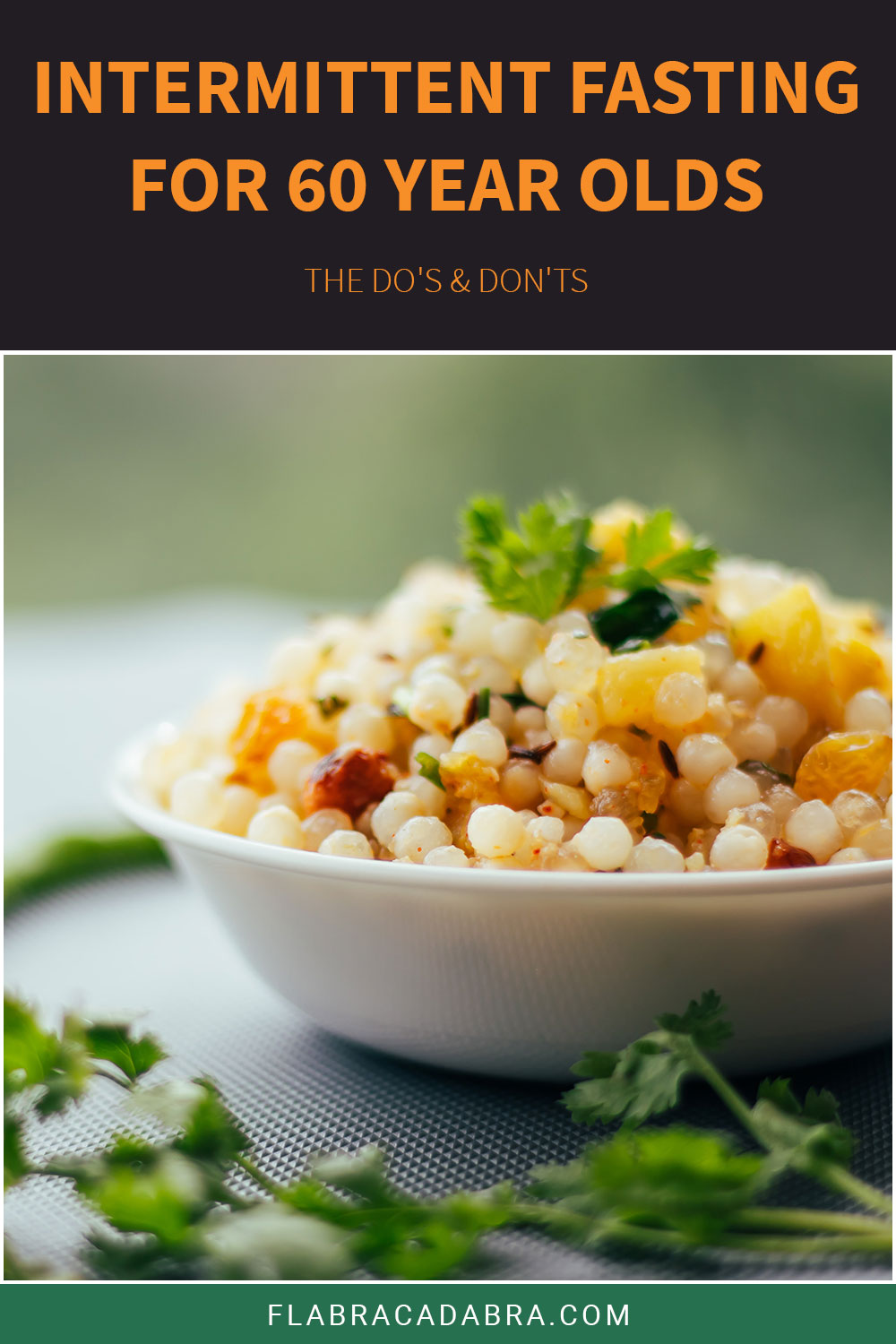It’s no secret that losing weight in your 60s is difficult. This can be for a number of reasons, such as menopause and a slower metabolism. But just because something is difficult does not mean that it cannot be done.
In recent years, Intermittent Fasting has become more popular thanks to its numerous health benefits and the fact that it doesn’t restrict food choices in the way that other weight loss methods do. In addition, and most important, it can help those in their 60s lose weight!
How To Do Intermittent Fasting in Your 60s?
There are a variety of ways to fast intermittently in your 60s, and it is not nearly as confusing or as complicated as it may seem – all you need to do is find the method that suits you best!
- Daily Method – This is the most popular method and usually follows a 16/8 or 18/6 rule. Put simply, and this means eating (healthy & regular) foods during a 6-8 hour window each day and then fasting for 16 – 18 hours.
Of course, this type of lifestyle change is not one that you will adapt to easily, so you can start with a 12/12 time schedule which is eating for 12 hours and then fasting for the remaining 12.
- 5:2 Method – This would perhaps be good for beginners as it eases you into the idea of restricting food. With the 5:2 method, you eat normal, healthy meals over five days of the week and then consume 500-600 calories the remaining two days of the week.
- 24-Hour Method – This is the most extreme method and should be treated with extreme caution. This method involves fasting over a 24-hour period (usually breakfast to breakfast or lunch to lunch) and is done once or twice a week. However, an important thing to note about this is that it often comes with extreme irritability, fatigue, and headaches.
Why Should You Try Intermittent Fasting as a 60-Year-Old?
Weight loss is perhaps one of the most popular reasons for intermittent fasting, but it isn’t the only reason you should be considering intermittent fasting – there are a lot of physical health benefits!
- Musculoskeletal Health – This includes conditions like arthritis, osteoporosis, and lower back pain. It has also been shown to promote hormone secretion from the thyroid, which can promote bone health and help prevent bone fractures.
- Metabolic Health – As a woman, by the time you have entered your 60s, you have most likely experiences menopause which can cause changes in your body that increase belly fat, insulin, and glucose. Blood pressure, cholesterol, and belly fat will decrease through fasting, and your metabolism will stay on track.
- Mental Health – Physical health and mental health go hand in hand, so an improvement of one will lead to an improvement of the other!
Other benefits include improved memory, tissue, and heart health.
Things You Need to Avoid Doing While Doing Intermittent Fasting in Your 60s
If you are going to commit to Intermittent Fasting, it is important that you do it properly in order to get the best results that you can.
Foods that are calorie-dense and contain high amounts of sugar, fat, and salt should be avoided as they will not fill you up and are likely to make you hungrier. Another thing to avoid is losing too much weight.
Whilst this might seem strange when doing something like intermittent fasting, it is important: losing too much weight affects your bones, overall immune system, and energy levels in older adults.
Final Thoughts on Intermittent Fasting for 60 year olds
Embarking on a lifestyle change like this one can be intimidating, but now that you’re familiarized with the basics, you should be set to go!
But remember: you will only reap the rewards if you do this in a safe and healthy way. So talk to a doctor or another health professional before beginning!

